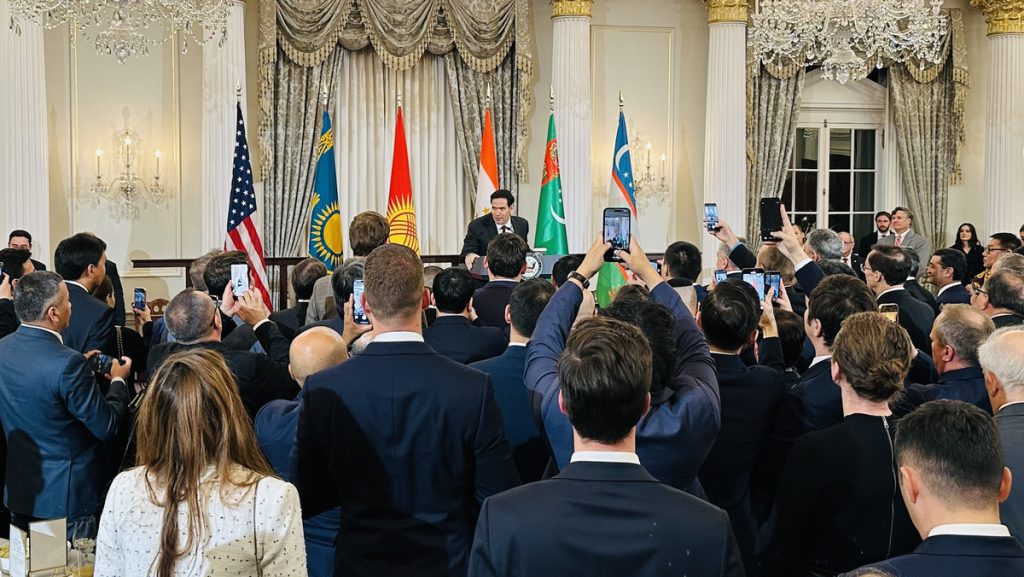WASHINGTON DC – The Trump administration is recalibrating its strategy in Central Asia to counter the increasing influence of Russia and China.
Ahead of today’s notable White House summit with the leaders of five significant Central Asian countries, US officials have indicated a swift shift in tactics, demonstrating a commitment to remaining competitive in the region’s power dynamics.
Legislative Moves Signal Intent
The initial move occurred during a State Department event on Wednesday evening, where Senators Jim Risch (R-ID) and Steve Daines (R-MT) introduced bipartisan legislation aimed at repealing the Jackson-Vanik amendment, an outdated trade restriction often described as “an absurd relic.”
This dismantling of the amendment is a clear indication that the US is taking its engagement in Central Asia seriously, according to analysts who view this as a key start to renewed efforts in the region.
Countering Moscow and Beijing
This legislative initiative serves as a strategic response to the expanding influence of Russia and China. With Russia’s political landscape growing increasingly unstable and China advancing its Belt and Road Initiative, Washington is working to provide a credible alternative for nations like Kazakhstan, Uzbekistan, and Tajikistan—countries Senator Risch describes as “great nations caught between powerful neighbors.”
The Jackson-Vanik amendment, originally enacted in 1974 to pressure the Soviet Union regarding Jewish emigration, has remained relevant long past the USSR’s existence. Its ongoing application has been a source of frustration for Central Asian governments seeking closer relations with the West.
Admitting Past Oversights
At the State Department event, officials expressed both optimism and acknowledgment of past neglect. Deputy Secretary of State Christopher Landau praised Trump for recognizing underattended global areas, while Secretary of State Marco Rubio admitted that US engagement in Central Asia had been somewhat overlooked.
Rubio noted, “We spend so much time managing crises that we sometimes overlook emerging opportunities,” framing the new engagement as timely and practical. Trump’s Special Envoy, Sergio Gor, emphasized that Central Asian leaders now have direct communication with the White House, crediting Senator Daines for prioritizing regional engagement.
Heightened Diplomatic Engagement
The reception served as a precursor to today’s collaborative meeting with the presidents of Kazakhstan, Kyrgyzstan, Tajikistan, Turkmenistan, and Uzbekistan at the Oval Office, followed by a state dinner aimed at fostering significant diplomatic engagement.
Rubio reiterated the administration’s commitment by stating his intention to visit all five nations in the upcoming year. He called the opportunities in Central Asia “amazing,” highlighting the potential for collaboration in diverse sectors. The Trump administration’s renewed focus stems from the rich mineral and energy resources of these nations, which remain economically linked to Russia and commercially involved with China.
The true challenge for Washington is to demonstrate an alternative based on voluntary trade, investment, and strategic cooperation instead of coercion. Ultimately, the push to repeal the Jackson-Vanik amendment is about establishing credibility. It would serve as a tangible example that the US can combine rhetoric with action in a region crucial to its strategic interests.
As one US diplomat stated, Washington is poised for deeper engagement in Central Asia “like never before.” Whether the repeal signifies a genuine commitment or becomes another unfulfilled promise is yet to be determined.



